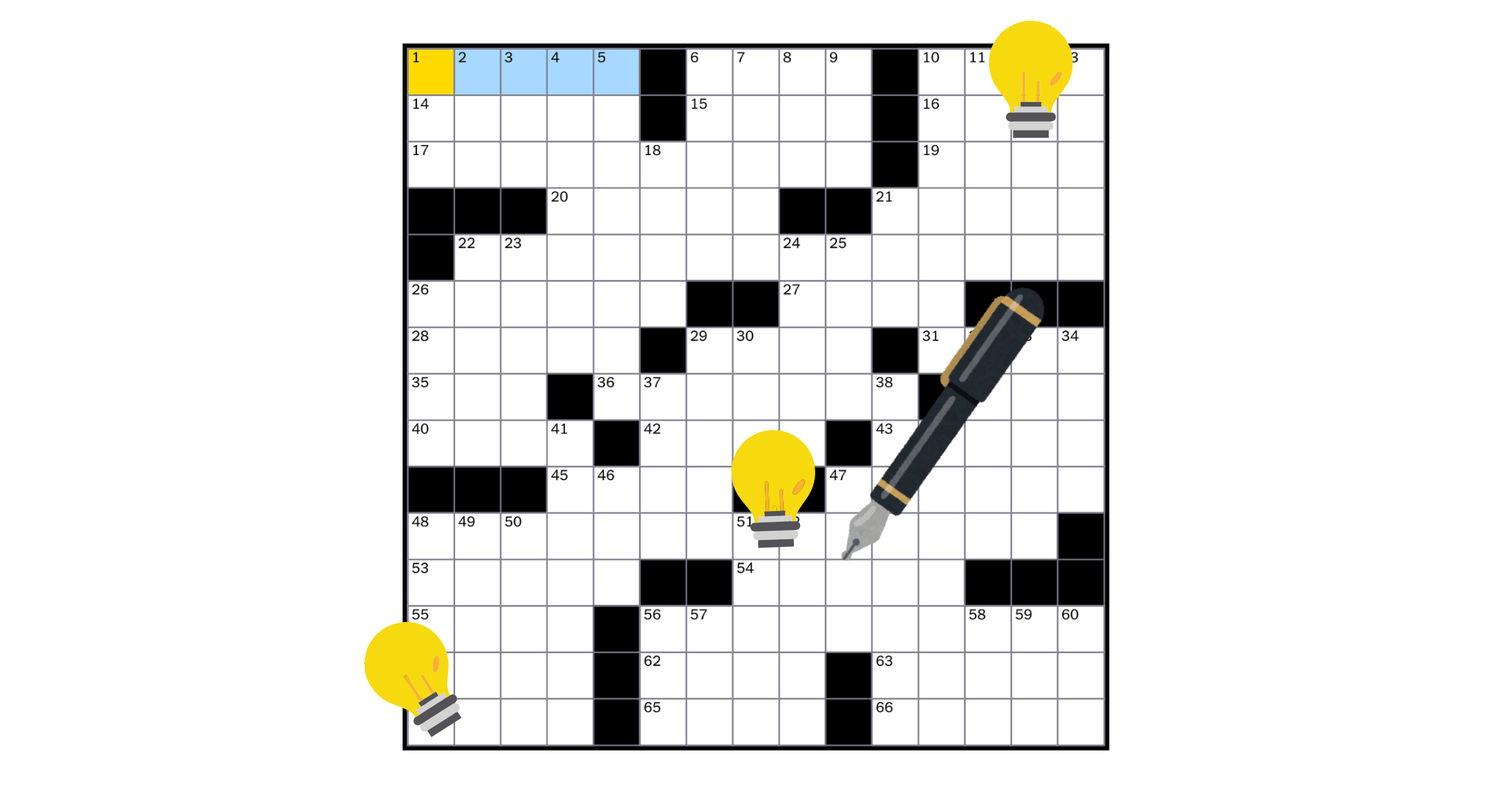Starting with the Mini or staring down the late-week Daily challenges? We have your back every step of the way. These tips come from analyzing every Mini and Daily puzzle ever published. Our archive, the most complete online, is yours to explore.
The NYT Mini is usually 5×5, except on Saturdays or when certain constructors create unique asymmetrical puzzles (most often Sam Ezersky, the Spelling Bee editor, does this). The Mini is produced entirely in-house by the NYT Games team, while the Daily comes from external constructors whose submissions are selected and edited by the team. There’s no official Mini difficulty curve, but many solvers agree it’s become trickier over the past couple of years.
The NYT Daily puzzle follows a clearer progression: Monday is the easiest, Saturday the hardest, and Sunday the longest (but not always the toughest). Monday through Thursday grids feature themes, with Thursday often introducing a twist, a visual gimmick, or other wordplay. Friday and Saturday are themeless but more challenging, while Sunday returns to a theme, often hinted at in the title.
Officially, the Mini is themeless, but constructors admit they sometimes sneak in hidden meanings, just for fun.
Not ready to dive into all 15 tips just yet? This short video runs through 10 of the most impactful NYT Crossword tricks.
Here are our beginner-friendly tips for crossword solvers, especially those tackling the NYT.
Tip 1. Master the Art of Reading Clues
Crossword clues aren’t just straightforward hints; they follow a set of rules and conventions that can unlock the answer faster once you know them. Some basics to keep in mind:
- Tense & Parts of Speech: Clues and answers usually match in tense (past, present) and word form (noun, verb, adjective).
- Plurals: Plural clues almost always mean a plural answer.
- Abbreviations: If a clue contains an abbreviation, the answer is usually abbreviated too.
More advanced clues can employ:
- Question marks (?) to signal wordplay or puns, not straightforward definitions.
- Quotation marks (" ") and parentheses ( ) to indicate indirect or special meanings.
- Veiled capitals: Capital letters may hint at proper nouns or other tricks.
For a deeper dive into clue-reading strategies, check out our comprehensive guide to NYT Crossword mastery.
Tip 2: Memorize Common Crossword Staples
Many crossword answers are recurring words, some useful beyond puzzles, others mainly familiar because of their frequent appearances. These “staple” words are popular because of their helpful letter patterns and crossword-friendly structures.
At first, focus on learning as many as you can by heart. Over time, regular solving will make them second nature. Here are some essential crossword staples to get you started:
| Word | Meaning |
|---|---|
| ADIT | A mine entrance or horizontal shaft |
| ADUE | Musical term meaning “for two” performers |
| AERIE | Bird of prey’s nest, often high up on cliffs |
| AGE | James Agee, writer and screenwriter; also crossword gold |
| AGRA | Indian city that’s home to the Taj Mahal |
| ALOU | Baseball surname shared by multiple famous brothers |
| APSE | Part of the church where the lapsed are to be seen |
| ARAL | Once-huge sea between Kazakhstan and Uzbekistan |
| ASP | Venomous Egyptian snake tied to Cleopatra |
| EDAM | Semi-hard Dutch cheese, red wax rind |
| EFT | A young newt; amphibian clue favorite |
| ELI | Nickname for a Yale student or alum |
| ELBA | Mediterranean island where Napoleon was exiled |
| ENO | Brian Eno, music producer |
| ENOLA | Plane that dropped the first atomic bomb (Enola Gay) |
| ERLE | Erle Stanley Gardner, creator of Perry Mason |
| ERNE | Sea eagle; crossworders love its weird spelling |
| ESAI | Actor Morales, frequent filler due to its vowel-rich structure |
| ESAU | Biblical twin who sold his birthright |
| ETUI | Small decorative sewing case, often for needles |
| ILIAD | Homer’s epic set during the Trojan War |
| OGEE | S-shaped curve in molding or architecture |
| OGRE | Mythical man-eating giant from fairy tales |
| OMOO | Lesser-known novel by Herman Melville; great for its letters |
| ONO | Yoko ___, avant-garde artist and Lennon’s widow |
| ORE | Mineral-rich rock mined for metals |
| OREO | Popular cookie brand; crossword darling thanks to its vowels |
| OTIS | Elevator company name; also a common given name |
| SUSHI | Prepared huss with island fish dish |
| LOCH Ness | Famous Scottish lake |
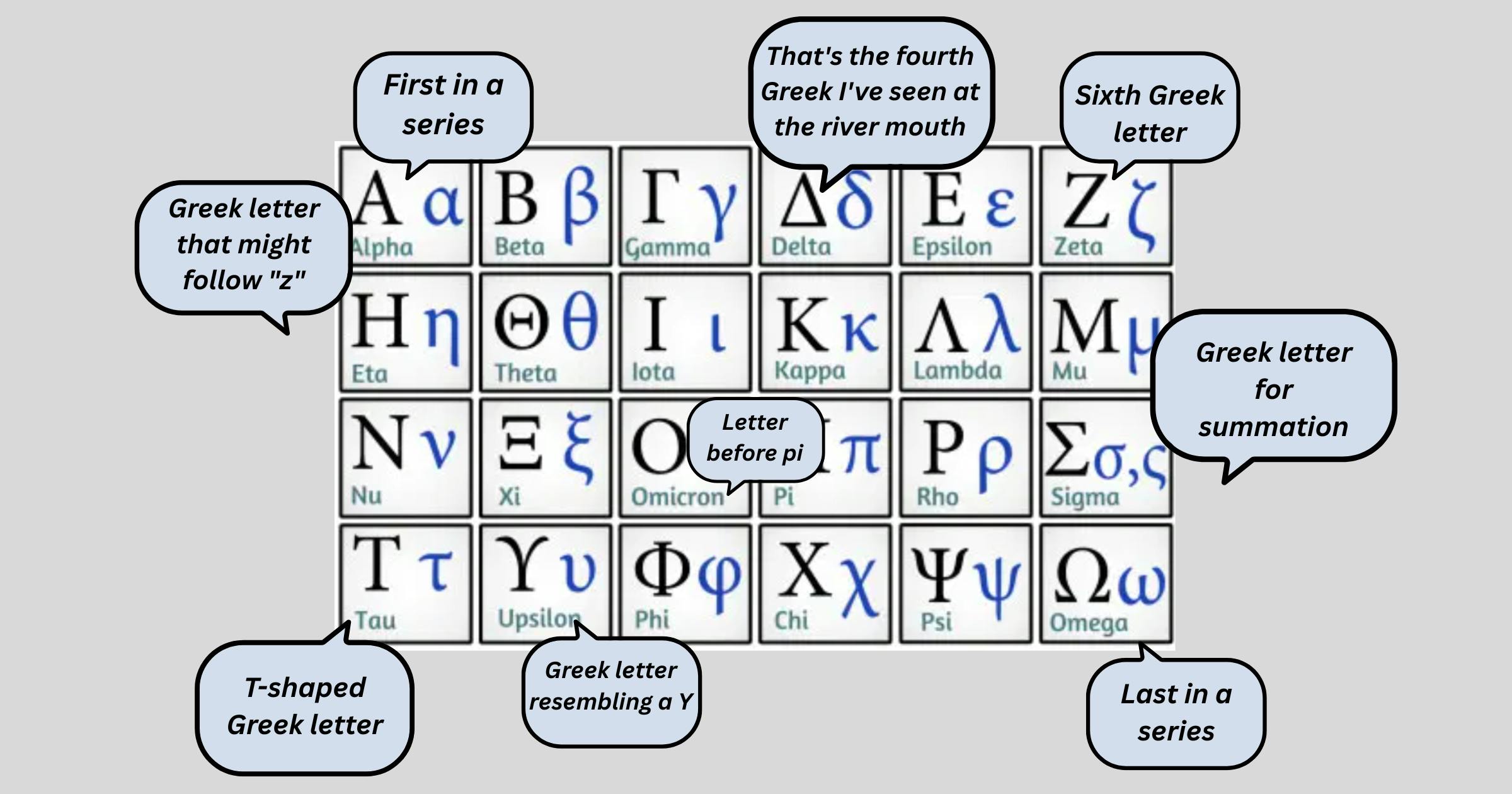
Tip 3: Master the Greek Alphabet
Familiarity with the Greek alphabet is a huge help in NYT crosswords, as these letters often appear in clues and answers. Here’s a quick reference with common clue examples to get you started.
| Letter | Common Clue Example |
|---|---|
| ALPHA | "First in a series" |
| BETA | "Test version" or "B in the Greek alphabet" |
| GAMMA | "Third Greek letter" |
| DELTA | "River mouth formation" or "That's the fourth Greek I've seen at the river mouth!" |
| EPSILON | "Small Greek letter" |
| ZETA | "Sixth Greek letter" |
| ETA | Greek letter that might follow "z" |
| THETA | "Letter between eta and iota" |
| IOTA | "Tiny bit (Greek letter)" |
| KAPPA | "Letter after iota" |
| LAMBDA | "Greek letter shaped like an upside-down V" |
| MU | "Greek letter that sounds like a barnyard animal" |
| NU | "Greek letter that sounds like 'new'" |
| XI | "Greek letter between nu and omicron" |
| OMICRON | "Letter before pi" |
| PI | "Ratio of circumference to diameter" or "16th Greek letter" |
| RHO | "Greek letter that sounds like a row" |
| SIGMA | "Greek letter for summation" |
| TAU | "T-shaped Greek letter" |
| UPSILON | "Greek letter resembling a Y" |
| PHI | "Golden ratio symbol" |
| CHI | "Greek letter that sounds like a greeting" |
| PSI | "Letter before omega" |
| OMEGA | "Last in a series" |
Tip 4: Directions & Abbreviations
Crossword clues often use abbreviated compass points, sometimes with a twist. Beyond the basic N, S, E, and W, you’ll frequently see combinations that describe intermediate directions. Common Abbreviations:
- NNE – North-northeast
- ENE – East-northeast
- ESE – East-southeast
- SSE – South-southeast
- SSW – South-southwest
- WSW – West-southwest
- WNW – West-northwest
- NNW – North-northwest
Tips 5: Currencies Around the Grid
Money talks even in crosswords. Currency names are common entries, often clued with reference to countries that use (or once used) them. Knowing these can help you fill short, vowel-rich answers quickly.
- LIRA – Former currency of Italy and Turkey
- YEN – Currency of Japan; short and crossword-friendly
- EURO – Used by many EU countries since 2002
- RUPEE – Currency in India, Pakistan, Sri Lanka, and others
- PESO – Found in Mexico, Argentina, and several Latin American countries
- BAHT – Currency of Thailand
- DINAR – Used in countries like Jordan, Algeria, and Serbia
- DOLLAR – Official currency in the U.S., Canada, Australia, and more
- KRONE/KRONA – “Krone” in Norway/Denmark; “Krona” in Sweden/Iceland
- POUND – Currency of the U.K., Egypt, and a few others
- QINTAR/QINDAR – An Albanian currency unit you might also know from Scrabble, where “Q-without-U” words are especially valuable
- MARK – Former currency of Germany (Deutsche Mark)
- RAND – Currency of South Africa
- FRANC – Former currency of France; still used in Switzerland and parts of Africa
Tip 6: Learn the Spanish & French Words You’ll See Again and Again
Many Spanish and French words frequently appear in crosswords, especially short, vowel-rich ones or common articles and pronouns. Knowing these can give you a big advantage.
| English Meaning | Spanish | French | Notes for Solvers |
|---|---|---|---|
| the (definite article) | el / la | le / la | Gendered; articles pop up all the time in clues. |
| a / an (indefinite article) | un / una | un / une | Same idea as “the,” but indefinite. |
| one | uno / una | un / une | Often clued numerically (“One, in Madrid/Paris”). |
| love | amor | amour | Common poetic clue for “LOVE” in both languages. |
| friend | amigo / amiga | ami / amie | Crossword-friendly endings (-o/-a, -i/-ie). |
| man / woman | hombre / mujer | homme / femme | Gender clues often give away the language. |
| Mr. / Mrs. | señor / señora | monsieur / madame | Titles are frequent, especially in themed puzzles. |
| sir / lady | señor / señora | monsieur / dame | Often clued as polite address. |
| sun | sol | soleil | SOL appears a lot as both a musical note and Spanish word for sun. |
| moon | luna | lune | Short, vowel-rich—crossword gold. |
| water | agua | eau | EAU is a very common French crossword entry. |
| year | año | an / année | “Year, abroad” clues work for both. |
| day | día | jour | Often clued with “____ de la semaine” or “____ de la semana.” |
| night | noche | nuit | Short, vowel-rich—appears often. |
| summer | verano | été | ÉTÉ is one of the most common French crossword words. |
| winter | invierno | hiver | Less common than summer, but still appears. |
| yes | sí | oui | Both extremely common in grids. |
| no | no | non | Both short and frequent. |
| I | yo | je | Appear in pronoun-heavy clues. |
| you (informal singular) | tú | tu | Often appears in possessive sense in French clues. |
| he | él | il | Short, high-vowel density. |
| she | ella | elle | Common gender-pronoun fill. |
| we | nosotros / nosotras | nous | French “nous” is more common in grids. |
| they | ellos / ellas | eux / elles | EUX is common because of the rare “-ux” ending. |
| to be (infinitive) | ser / estar | être | SER is one of the most frequent Spanish crossword answers. |
| to have | tener | avoir | AVEZ, AS (you have) and other conjugations also appear. |
| gold | oro | or | OR is super frequent in grids due to shortness. |
| air | aire | air | Same word in both languages—often clued “Air, in Paris/Madrid.” |
| sea | mar | mer | MER appears often for “Sea, in France.” |
| king | rey | roi | Also used in chess clues. |
| queen | reina | reine | Can be clued royally or in chess. |
Tip 7: The Latin Cheat Sheet for Crossword Solvers
Latin pops up in crosswords far more than you might expect. Knowing a few common entries can give you an instant leg up when solving. Here are the ones you’ll see most often:
- EST – “Is” in Latin; a tiny but frequent filler word
- ESSE – “To be”; the infinitive form of est
- ET AL – Short for et alii, meaning “and others,” common in academic contexts
- EGO – “I” in Latin; also used in psychology
- AMOR – “Love”; a crossword-friendly vowel-rich word
- ERAT – “Was” in Latin; often part of historical references
- ETC. – Short for et cetera, “and so forth”
- ERGO – “Therefore”; still used in English
- ET TU – “And you”; famous from Et tu, Brute? in Shakespeare’s Julius Caesar
For deeper explanations, examples, and more useful Latin terms, check out our Extended Latin for Crossword Solvers guide.
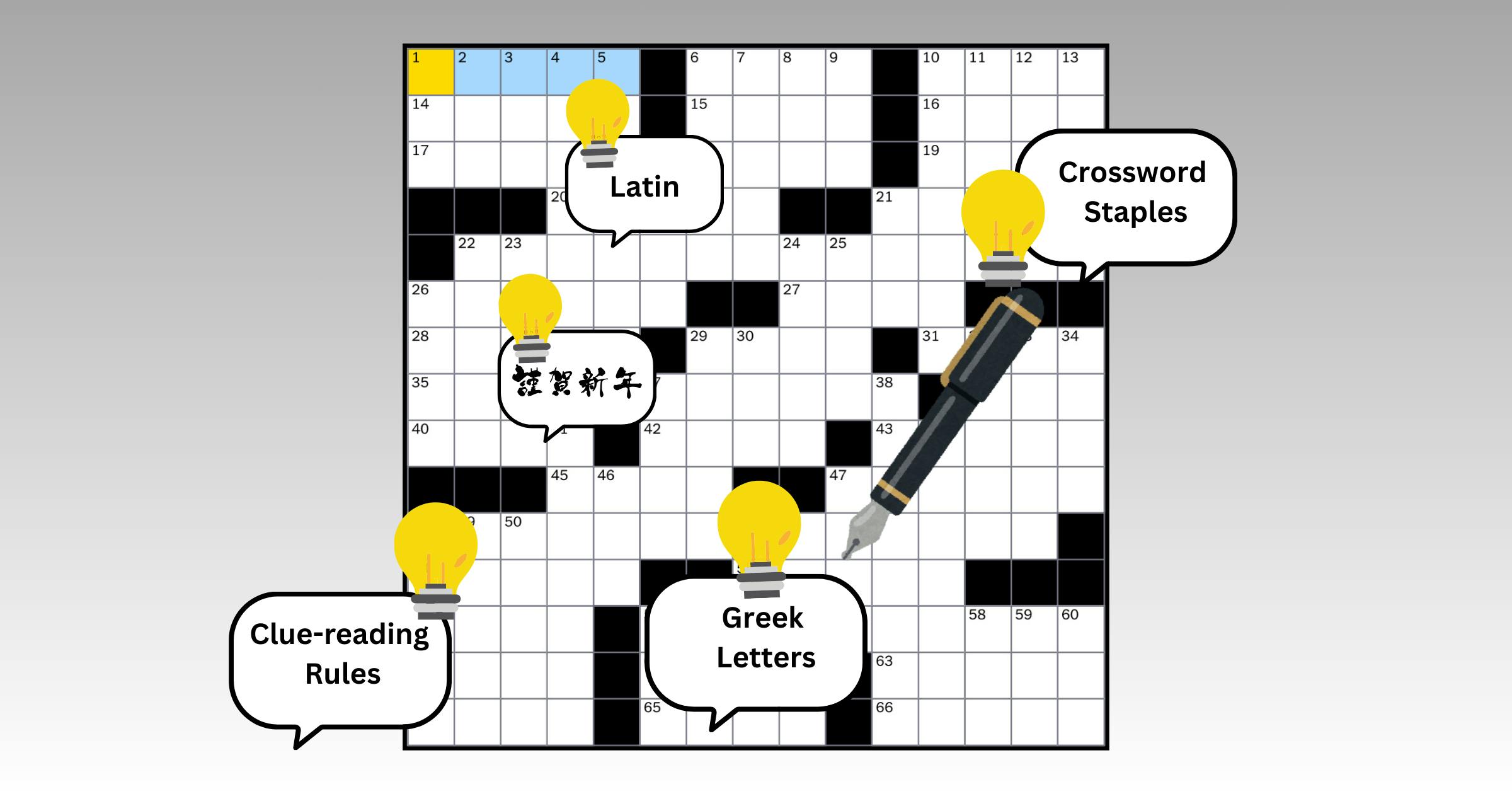
Tip 8: Japanese Words That Pop Up in Crosswords
Japanese culture, food, and geography show up in crosswords more often than you might think. Here are some of the most common entries and what they mean:
- EDAMAME – Young soybeans, usually served salted in their pods
- SAKE – Japanese rice wine, often clued as a “brew”
- MOCHI – Sweet, chewy rice cake made from glutinous rice
- KOI – Ornamental carp often seen in ponds and gardens
- SHINTO – Japan’s indigenous religion, focused on nature and ancestors
- IKEBANA – The Japanese art of flower arranging
- OKINAWA – An island prefecture in southern Japan
- NARA – Ancient capital of Japan, famous for its temples and free-roaming deer
- HONSHU – Japan’s largest island, home to Tokyo, Kyoto, and Osaka
- SENSEI – Teacher or master in martial arts and other fields
- ARIGATO – “Thank you” in Japanese
- OBI – Sash worn with a traditional kimono
For a deeper dive into Japan-inspired crossword clues and answers, see our full guide: Japan in the Grid.
Tip 9: Learn these Jewish & Yiddish Words You’ll See in the Grid
Many NYT puzzles sprinkle in Jewish and Yiddish terms like food, feelings, religious words, and character traits, and knowing these makes short, vowel-rich answers snap into place.
| Word | Short Explanation |
|---|---|
| OY VEY / OYVEY | Exclamation of dismay or exasperation (“Oh no!”). |
| TSURIS | Troubles; worries. |
| NOSH | Snack; to snack. |
| SCHMALTZ | Literal: chicken fat; Figurative: excessive sentimentality. |
| CHUTZPAH / CHUTZPA | Boldness; audacity. |
| MEGILLAH / MEGILLA | Long, complicated story; also a scroll read on Purim. |
| VERKLEMPT | Overcome with emotion. |
| KVETCH | To complain; a complainer. |
| KVELL | To beam with pride. |
| MENSCH | A person of integrity; a good person. |
| SCHLEP / SCHLEPP | To carry or drag; a burdensome trip. |
| TCHOTCHKE / TCHOTCHKY | Knickknack; trinket. |
| BAGEL | Ring-shaped bread roll, often boiled then baked. |
| CHALLAH | Braided bread for Sabbath and holidays. |
| LATKE | Potato pancake, traditionally served at Hanukkah. |
| L'CHAIM / LCHAIM | Hebrew toast meaning “To life!” |
| ALEPH | First letter of the Hebrew alphabet. |
| KIBBUTZ | Collective agricultural community in Israel. |
| RABBI | Jewish religious teacher or leader. |
| KOSHER | Fit under Jewish dietary law; also slang for “legit.” |
Tip 10: Sacred Syllables & Spiritual Clues: Sanskrit in the Crossword
From ancient philosophy to modern yoga studios, Sanskrit terms often make their way into crossword grids—short, vowel-rich, and steeped in meaning. Here are the ones you’ll see most often:
- OM / AUM – Sacred sound and symbol in Hinduism, Buddhism, Jainism
- YOGA – Discipline uniting mind, body, and spirit
- ASANA – Physical posture in yoga
- NIRVANA – Liberation from cycle of rebirth; ultimate peace
- KARMA – Actions and their spiritual consequences
- DHARMA – Duty, law, or moral order
- MANTRA – Sacred utterance repeated in meditation
- RAGA – Melodic framework in Indian classical music
- YOGI – Practitioner of yoga
- SUTRA – Concise spiritual or philosophical text
- AVATAR – Incarnation of a deity; manifestation
- VEDA – Ancient Hindu sacred text
- INDRA – Vedic deity of rain and storms
- LILA / LEELA – Divine play or cosmic game
- MAYA – Illusion; the deceptive nature of reality
- BODHI – Enlightenment or awakening
- CHAKRA – Energy center in the body
- PRANA – Vital life force or breath
- SADHU – Hindu holy man or ascetic
- TANTRA – Esoteric spiritual tradition or text
Tip 11: Crossword Leaders of Faith and Wisdom
Crosswords love a good leader, especially those with compact names and centuries of tradition behind them. Many hail from religious or spiritual contexts, but you’ll also find titles from law and community life.
- POPE – Head of the Roman Catholic Church
- ABBOT – Head of a monastery
- MONK – Member of a religious community under vows
- PRIOR – Second-in-command in a monastery
- VICAR – Parish priest or cleric acting in another’s stead
- PASTOR – Minister in charge of a Christian congregation
- PRIEST – Cleric authorized to perform sacred rites
- RABBI – Jewish religious teacher and leader
- CANTOR – Leader of singing or chanting in worship
- IMAM – Muslim prayer leader
- MUFTI – Islamic legal scholar issuing fatwas
- AYATOLLAH – High-ranking Shiite Muslim cleric
- LAMA – Tibetan Buddhist monk or teacher
- GURU – Spiritual teacher, especially in Hinduism
- SWAMI – Hindu religious teacher or ascetic
- SADHU – Hindu holy man or ascetic
- ELDER – Senior leader in some Christian or tribal traditions
- SEER – Prophet or one who perceives hidden truths
- SAGE – Wise spiritual or philosophical teacher
- QADI – Islamic judge
- QAID – Muslim community leader or commander
Tip 12: Archaic Gems Every Solver Should Learn
Many NYT crosswords love to include archaic words that can stump beginners but are worth memorizing. Here’s a handy list of commonly used old-fashioned terms and their meanings.
| Word | Meaning / Common Clue |
|---|---|
| ALEE | (Nautical) Away from the wind. Often clued as "Out of the wind" or "On the safe side (nautically)" |
| ANENT | About; concerning |
| ANON | At once; soon; shortly |
| ERE | Before (as in time) |
| ERIN | Poetic name for Ireland |
| ETUI | A small, ornamental case for needles, toiletries, or similar small articles |
| EYNE | Archaic plural of "eye" |
| FIE | An exclamation expressing disgust or disapproval |
| FORSOOTH | In truth; indeed (often used ironically) |
| HARK | To listen |
| HERETOFOR | Until now |
| HOWBEIT | Although |
| IWIS | Surely; certainly |
| LIEF | Soon; gladly |
| MAYHAP | Perhaps |
| METHINKS | It seems to me; I think |
| NARY | Not a (one) |
| NATHELESS | Nevertheless |
| NIGH | Nearly; almost |
| OLIO | A miscellany; a hodgepodge. Often clued as "medley" or "potpourri" |
| O'ER | Poetic contraction of "over" |
| OFT | Often |
| POESY | Poetry |
| PRITHEE | Please (a contraction of "I pray thee") |
| QUOTHA | An archaic exclamation, often used with contempt or surprise |
| REDE | To counsel or advise |
| RUTH | Pity; compassion; sorrow |
| SITH | Since |
| SWAIN | A country youth; a lover or suitor |
| THITHER | To that place |
| THUSLY | In this way; thus |
| THY | Your (archaic singular) |
| TIS | Contraction of "it is" |
| UNTO | To |
| WHILOM | Formerly; once upon a time |
| WIT | To know (e.g., "to wit") |
| YCLEPT | Called; named |
Tip 13: Shakespeare in the Grid: 10 Key Quotes
William Shakespeare’s impact on the English language is immeasurable, enriching it with phrases and words still in use today. Many of his expressions, some overlapping with archaic vocabulary, frequently appear in crossword clues, often in varied forms or allusions.
- "To be or not to be" – Hamlet’s iconic question about existence.
- "Calls back the lovely April of her prime" – From Sonnet 104, evoking youth and beauty returning each spring.
- "Tomorrow, and tomorrow, and tomorrow, creeps in this petty pace from day to day, to the last syllable of recorded time; and all our yesterdays have lighted fools the way to dusty death." – From Macbeth, reflecting on life’s futility.
- "Thou art as loathsome as a toad" – From Titus Andronicus, a venomous insult.
- "Frailty, thy name is woman!" – Hamlet’s bitter observation about his mother.
- "Neither a borrower nor a lender" – Polonius’s advice from Hamlet.
- "Et tu, Brute?" – Julius Caesar’s final words to Brutus.
- "Brevity is the soul of wit" – From Hamlet, praising concise expression.
- "A rose by any other name would smell as sweet" – Juliet in Romeo and Juliet, dismissing the importance of names.
- "A pound of flesh" – From The Merchant of Venice, Shylock’s demand for repayment.
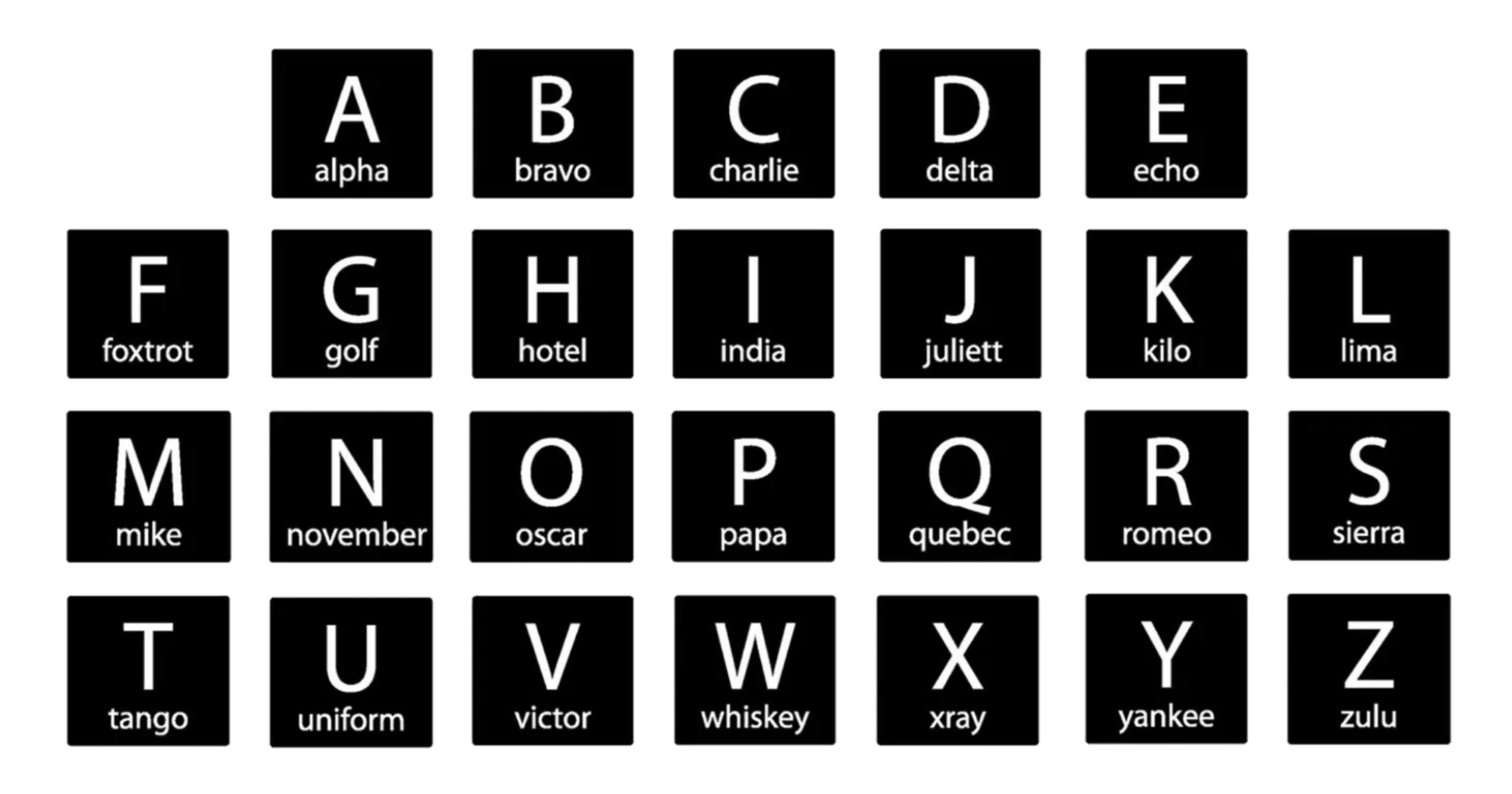
Tip 14: Alfa to Zulu: The NATO Phonetic Alphabet
- A – Alfa
- B – Bravo
- C – Charlie
- D – Delta
- E – Echo
- F – Foxtrot
- G – Golf
- H – Hotel
- I – India
- J – Juliett
- K – Kilo
- L – Lima
- M – Mike
- N – November
- O – Oscar
- P – Papa
- Q – Quebec
- R – Romeo
- S – Sierra
- T – Tango
- U – Uniform
- V – Victor
- W – Whiskey
- X – X-ray
- Y – Yankee
- Z – Zulu
Tip 15: Mountains & Rivers Crossword Clues Can’t Get Enough Of
Crossword constructors love geography, especially mountains and rivers with short, handy names. These natural landmarks aren’t just global icons; they’re also grid gold. Here’s a quick reference for the summits and waterways you’ll meet again and again.
Mountains
- ETNA – Sicily, Italy (volcano)
- ANDES – South America (longest continental range)
- URAL – Russia/Kazakhstan (also a river)
- ATLAS – North Africa (Morocco, Algeria, Tunisia)
- DENALI – Alaska, tallest in North America
- FUJI – Japan’s iconic mountain
- EVEREST – Tallest in the world (Nepal/China border)
- ELBRUS – Caucasus, tallest in Europe
- OLYMPUS – Greece (mythological home of the gods)
- IDAHO – U.S. state sometimes clued for the Sawtooth Mountains
- ARARAT – Associated with Noah’s Ark (Turkey/Armenia)
- HOOD – Oregon volcano
- RAINIER – Washington volcano
- PINDUS – Greece
- TETONS – Wyoming’s Grand Teton Range
Rivers
- ARNO – Italy (Florence, Pisa)
- EBRO – Spain (longest river flowing into the Mediterranean)
- ELBE – Germany/Czech Republic
- SEINE – France (Paris)
- RHINE – Central Europe
- URAL – Russia/Kazakhstan (also a mountain range)
- NILE – Africa (Egypt, Sudan)
- ODER – Germany–Poland border
- LOIRE – France (château country)
- AMAZON – South America (longest river by volume)
- THAMES – England (London)
- GANGES – India/Bangladesh (sacred river)
- YANGTZE – China’s longest river
- TIBER – Italy (Rome)
- INDUS – Pakistan/India
- VOLGA – Russia (longest in Europe)
Your Next Crossword Adventure Awaits
From Greek letters and Shakespearean quotes to Japanese imports and beyond, crossword grids are packed with fascinating words and trivia from diverse origins. If you enjoyed these tips, explore our Crossword Resources for even more clue-cracking insights. And don’t stop now, we’re constantly publishing fresh content to help you get sharper, faster, and have more fun with every puzzle. Stay tuned and keep solving!
Seasoned solvers, we’d love to hear from you! Please share your feedback or let us know if we missed any must-know tips or themes!

 NY Times Mini
NY Times Mini NY Times Crossword
NY Times Crossword NY Times Wordle
NY Times Wordle NY Times Connections
NY Times Connections NY Times Connections Sports Edition
NY Times Connections Sports Edition NY Times Strands
NY Times Strands NY Times Spelling Bee
NY Times Spelling Bee NY Times Pips
NY Times Pips Word Salad
Word Salad Contexto
Contexto Blossom
Blossom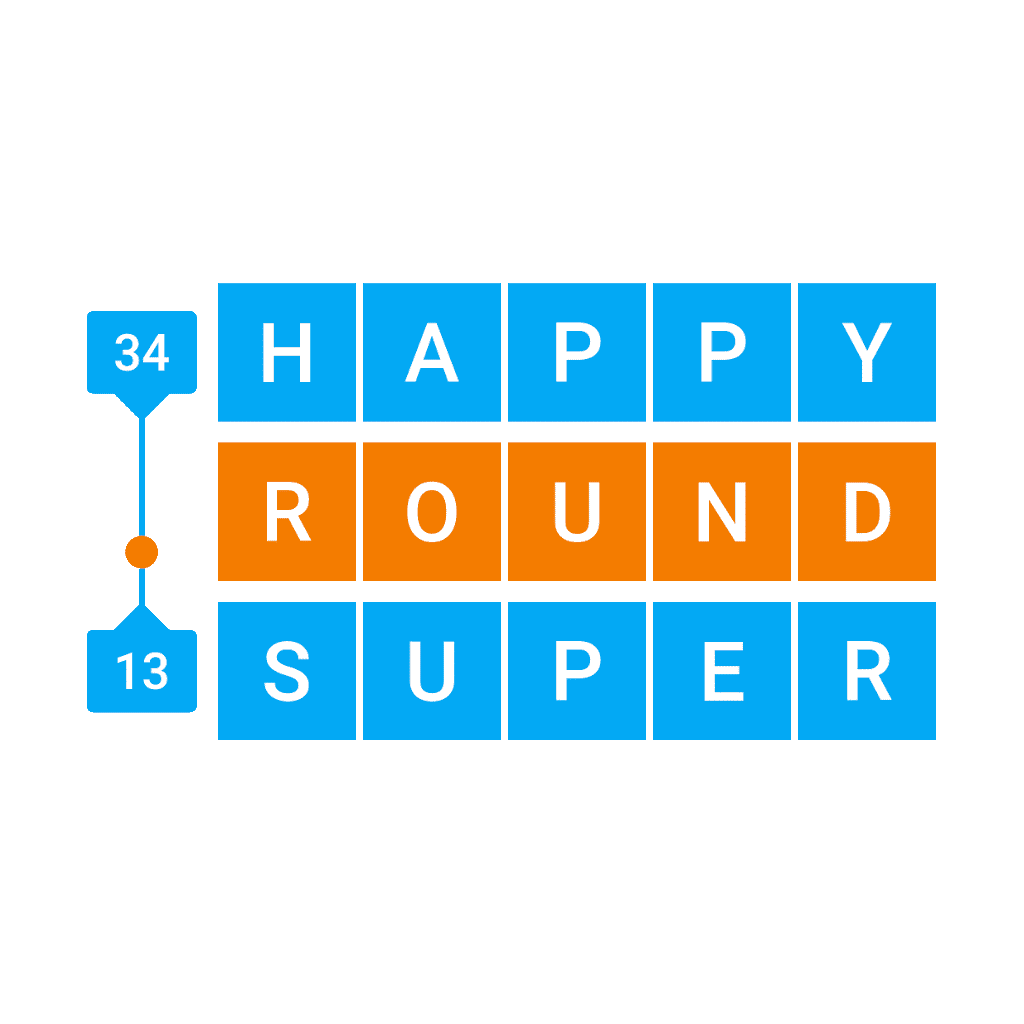 Betweenle
Betweenle Conexo
Conexo Bracket City
Bracket City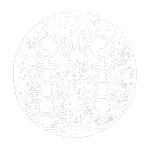 Fluxis
Fluxis Stacks
Stacks Atlantic Crossword
Atlantic Crossword LA Times Mini
LA Times Mini LA Times Crossword
LA Times Crossword Anagram Solver
Anagram Solver Scrabble Word Finder
Scrabble Word Finder Words With Friends Word Finder
Words With Friends Word Finder Atlantic Games
Atlantic Games LA Times
LA Times Zorzzle
Zorzzle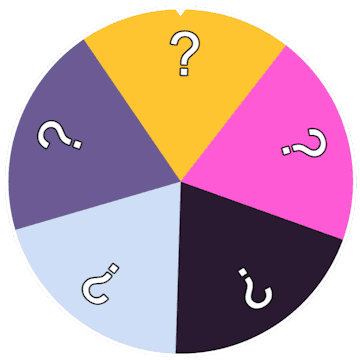 Word of Fortune
Word of Fortune
